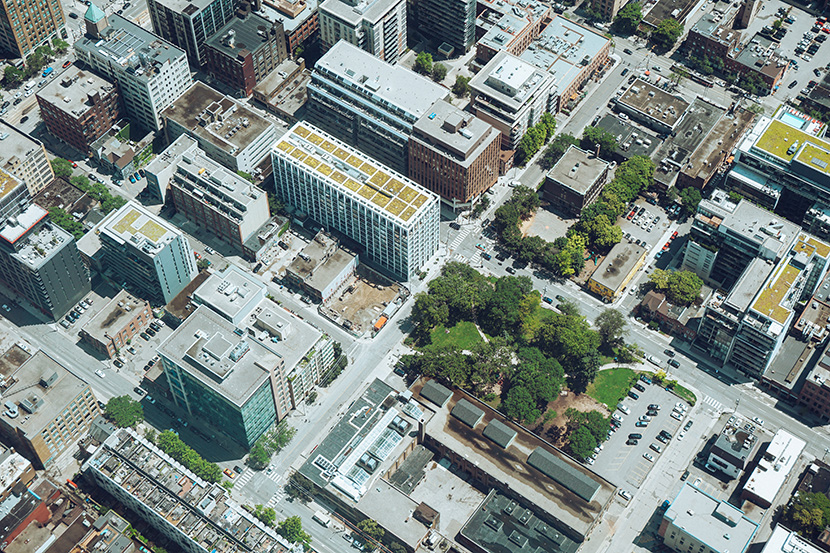
COVID Upends CBD Real Estate

(Downtown Toronto, Ontario)
The COVID pandemic is wreaking havoc on commercial and residential real estate, especially in central business districts, said Wells Fargo Securities, Charlotte, N.C.
“Office workers, whose presence is part of what propels economic activity in downtown areas, continue to work from home or other remote locations,” Wells Fargo Securities said in a commentary released yesterday, COVID Crisis Upends Downtown Real Estate. “The near extinction of the daily commuter has deprived restaurants, bars, coffee shops, gyms, dry-cleaners, barber shops, doctors, dentists and drug stores, to name just a few, from a vital source of revenue.”
In addition, many city-dwelling renters have moved to greener pastures over the past few months, the report noted. “There now appears to be an exodus of urban renters moving to the suburbs or exurbs, a trend that has surely been supported by record low mortgage rates and the desire for more livable space to work-from-home and abide by social distancing protocols,” Wells Fargo Securities said.
Wells Fargo found mobility in urban counties with at least one million residents fell faster as the crisis started and has lagged behind their suburban counterparts ever since. Consumer spending in urban counties has also recovered more slowly than in suburban areas, the report said.
“We continue to believe most office workers will eventually return to their offices,” the report said. “Office space plays a key role in fostering collaboration, innovation culture and productivity–all of which are essential to creating and maintaining a comparative advantage to competitors.”
But the timing of workers’ return to the office depends on the pandemic’s path, the report said: “Even with promising advances in testing capabilities and new treatments, firms will likely wait until a vaccine is widely distributed to fully bring back their workforce, which we believe will not occur until the second half of 2021, at the earliest.”
Wells Fargo Securities said businesses in urban areas face a difficult road to recovery. “Once the pandemic is fully in the rearview mirror, office workers will return,” the report said. “The success of remote work, however, means significantly less will likely come back. Tourism and business travel will similarly be slow to recover…Many firms are now seeking space that will allow workers to spread out in low-rise buildings with more open spaces, which are typically located in the suburbs, rather than traditional high-rise office buildings which dominate urban spaces.”
